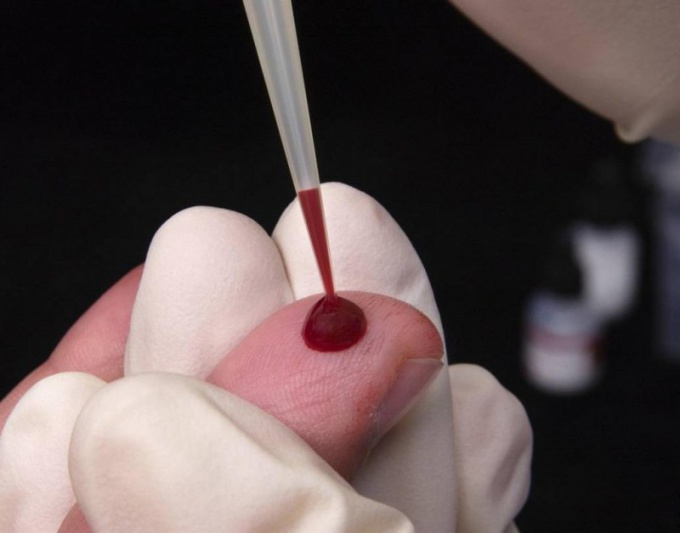The rate of erythrocyte sedimentation rate (ESR) in the blood is one of the main features that keep track of the doctors in the study laboratory analysis of this material. Such close attention to this indicator due to the fact that it can serve as a sign of the presence in the body of the inflammatory process.
The rate of erythrocyte sedimentation rate in the blood depends on the sex and age of the person whose blood is examined. So, the highest rate erythrocyte sedimentation rate is usually observed in infants: it is from 12 to 17 millimeters per hour. The normal rate erythrocyte sedimentation rate for women is equal 3-15 mm/h for men is 1-10 mm/hour for newborns - 0-2 mm/hour. In the elderly the normal ESR is usually higher: it can reach up to 38 mm/h and 53 mm/h in women. So if your figures obtained in the analysis differ significantly from these figures, one should consult a doctor to find out what is the cause of elevated levels of ESR.
Preliminary conclusions about what problems may indicate elevated levels of ESR in your blood, and you can yourself. Thus, the deviation of the result from the norm for a few units is most often due to the specific characteristics of your body and may not be indicative of any serious dysfunction. However, in order to ensure that the resulting metric is normal for you, consult a physician for advice.
In the case that a deviation from the norm is 15-30 mm/HR, it usually indicates the presence of inflammation in the body. In some cases it may be obvious to you, for example, if you have a leaking catarrhal disease. However, the disease can be hidden, for example, if you hit the liver or the gastrointestinal tract. Therefore, in this case, you should consult a doctor who can prescribe additional tests. They will establish the nature of the disease and prescribe adequate treatment.
Even more serious is the excess of increased ESR compared with a normal level of 30 units or more. In this case, the experts commonly begin to suspect the presence of a progressive destructive process in the body. One of the most common examples of diseases that can accompany such a significant increase in erythrocyte sedimentation rate, are cancer symptoms. In such a situation you should immediately visit a doctor who can prescribe a comprehensive treatment taking into account the nature, specificity and intensity of your illness.
Normal levels of erythrocyte sedimentation rate
The rate of erythrocyte sedimentation rate in the blood depends on the sex and age of the person whose blood is examined. So, the highest rate erythrocyte sedimentation rate is usually observed in infants: it is from 12 to 17 millimeters per hour. The normal rate erythrocyte sedimentation rate for women is equal 3-15 mm/h for men is 1-10 mm/hour for newborns - 0-2 mm/hour. In the elderly the normal ESR is usually higher: it can reach up to 38 mm/h and 53 mm/h in women. So if your figures obtained in the analysis differ significantly from these figures, one should consult a doctor to find out what is the cause of elevated levels of ESR.
Elevated erythrocyte sedimentation rate indicators
Preliminary conclusions about what problems may indicate elevated levels of ESR in your blood, and you can yourself. Thus, the deviation of the result from the norm for a few units is most often due to the specific characteristics of your body and may not be indicative of any serious dysfunction. However, in order to ensure that the resulting metric is normal for you, consult a physician for advice.
In the case that a deviation from the norm is 15-30 mm/HR, it usually indicates the presence of inflammation in the body. In some cases it may be obvious to you, for example, if you have a leaking catarrhal disease. However, the disease can be hidden, for example, if you hit the liver or the gastrointestinal tract. Therefore, in this case, you should consult a doctor who can prescribe additional tests. They will establish the nature of the disease and prescribe adequate treatment.
Even more serious is the excess of increased ESR compared with a normal level of 30 units or more. In this case, the experts commonly begin to suspect the presence of a progressive destructive process in the body. One of the most common examples of diseases that can accompany such a significant increase in erythrocyte sedimentation rate, are cancer symptoms. In such a situation you should immediately visit a doctor who can prescribe a comprehensive treatment taking into account the nature, specificity and intensity of your illness.










